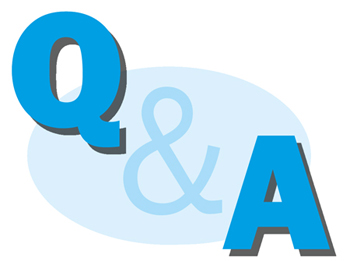Senior Q & A – February 2015

Senior Q & A: Answers to Common Questions about Senior Living
Q. What exactly is Plaque Psoriasis?
A. You may have seen the commercials on TV and were wondering about this condition. Plaque Psoriasis is an inherited systemic inflammatory disease of immune dysfunction. It’s most obvious clinical feature is plaque of elevated, inflamed skin. Plaques are scaly, red, bumpy areas of skin that are often itchy and are usually found on the scalp, elbows, and knees. Plaque psoriasis is relatively common; about 2%-3% of population of the United States is affected. If you think you may have this condition, see a physician to confirm the diagnosis. Your physician can provide helpful suggestions on how to minimize exacerbations of the condition and suggest treatment options.
Q. What benefits are available under Medicare for an individual residing in a skilled nursing facility?
A. Qualification for Medicare is based on attaining age 65 and being eligible for Social Security. Part A, which covers inpatient hospital expenses, is automatic; Part B, for outpatient health-care expenses, is optional. The latter coverage should be compared by any non-retiree to a health-care policy being provided by an employer. Provided that an individual has been hospitalized for at least three days, Medicare’s Part A will pay for the first 20 days in a skilled nursing facility for acute medical or rehabilitation care. The succeeding 80 days in a skilled nursing facility will be covered after payment of a deductible.
Q. What is a reverse mortgage?
A. A reverse mortgage is loan available to homeowners who are 62 years or older that enables them to convert part of the equity in their home into cash. The loan is called a reverse mortgage because the traditional mortgage payback stream is reversed. Instead of making monthly payments to a lender, as with a traditional mortgage, the lender makes payments to the borrower. You are not required to pay back the loan until the home is sold or otherwise vacated. As long as you live in the home, you’re not required to make any monthly payments towards the loan balance, but you must remain current on your property taxes, homeowners insurance, and condominium fees (if you live in a condo).
Q. How can I find senior living and care options for my loved one with Alzheimer’s disease?
A. If you’re a caregiver for a loved one who is suffering from Alzheimer’s disease, there are a great number of senior living options and services available, including senior residences with Alzheimer’s specialty services. Simply call a Senior Specialist at (888) WE-ASSIST (888-932-7747) or visit the Alternatives for Seniors website. A Senior Specialist will be happy to help you search for the perfect home for your loved ones.
BLOG Date: February 19, 2015
Writer: Ryan Allen